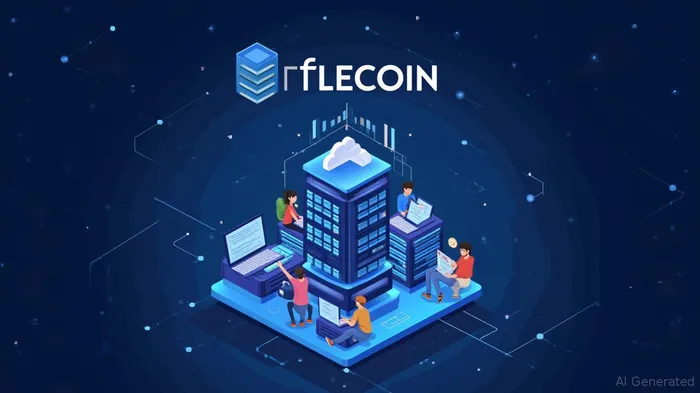Filecoin Expands Storage Network, Adds Cross-Chain Functionality
Filecoin, a decentralized storage network, has recently expanded its capabilities by enhancing its storage network and introducing cross-chain functionality. This development is significant as it allows FilecoinFIL-- to integrate with other blockchain networks, facilitating seamless data transfer and interaction between different ecosystems. The expansion of the storage network is aimed at increasing the overall capacity and efficiency of the platform, making it more attractive to users and developers alike.
The cross-chain functionality is a notable advancement, as it enables Filecoin to connect with other blockchain networks, thereby broadening its use cases. This feature is particularly beneficial for decentralized applications (dApps) that require interoperability between different blockchains. By supporting cross-chain transactions, Filecoin can offer a more comprehensive solution for data storage and management, catering to a wider range of users and applications.
Circle has added Filecoin to its Cross-Chain Transfer Protocol (CCTP). This integration allows users to move FIL tokens and tokenized storage receipts between blockchains. The change links Filecoin’s storage proofs with stablecoin transfers and lending activities. Multiple artificial intelligence research groups now store training datasets on Filecoin. Organizations like OpenCompute and MetaNeuron Labs cite decentralization and cost efficiency as reasons for this shift. Transparent data tracking also influenced their decision.
The enhanced storage network is designed to provide more robust and scalable storage solutions. This upgrade is crucial for accommodating the growing demand for decentralized storage, as traditional centralized storage solutions face challenges in terms of security, scalability, and cost. Filecoin's decentralized approach ensures that data is stored across a network of nodes, reducing the risk of data loss and enhancing security.
The introduction of cross-chain functionality is a strategic move that positions Filecoin as a key player in the interoperability space. By enabling seamless interaction between different blockchain networks, Filecoin can facilitate the development of more complex and interconnected dApps. This interoperability is essential for the growth of the decentralized ecosystem, as it allows different blockchain networks to work together, sharing data and resources efficiently.
The Filecoin Foundation launched a storage incentive program for scientific data. Participants earn FIL tokens for hosting public datasets in fields like climate science and genomics. This approach aims to create shared scientific records through decentralized storage. A new zkBridge feature enables private cross-chain file access. Institutions can now retrieve encrypted metadata from Filecoin through EthereumETH--, Sui, and SolanaSOL--. This system prioritizes confidentiality for enterprise users.
These updates address two needs: reliable large-scale data storage and interoperable token utility. The scientific archive program creates economic incentives for preserving public knowledge. Meanwhile, Circle’s integration broadens Filecoin’s utility in blockchain-based finance. Filecoin now stores over 100 exabytes of data across its decentralized network. This volume confirms its position as the world’s largest open storage system. Government agencies, universities, and Web3 projects use this infrastructure for data archiving.
In 2025, Filecoin’s integration with Ethereum, Solana, and Cosmos via cross-chain bridges and zk-privacy modules has made it a trusted backend for many multi-chain dApps. Enterprises and DAOs increasingly rely on FIL to store large datasets and enable verifiable, censorship-resistant file access. The expansion of Filecoin's storage network and the addition of cross-chain functionality are significant steps towards making decentralized storage more accessible and versatile. These developments are expected to attract more users and developers to the Filecoin platform, further solidifying its position in the decentralized storage market. As the demand for decentralized solutions continues to grow, Filecoin's enhanced capabilities will play a crucial role in shaping the future of data storage and management.

Quickly understand the history and background of various well-known coins
Latest Articles
Stay ahead of the market.
Get curated U.S. market news, insights and key dates delivered to your inbox.

Comments
No comments yet